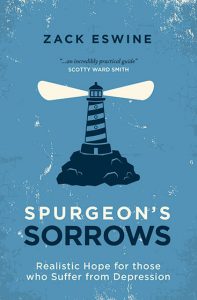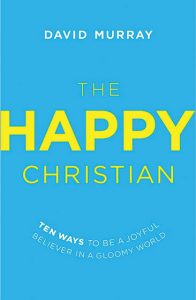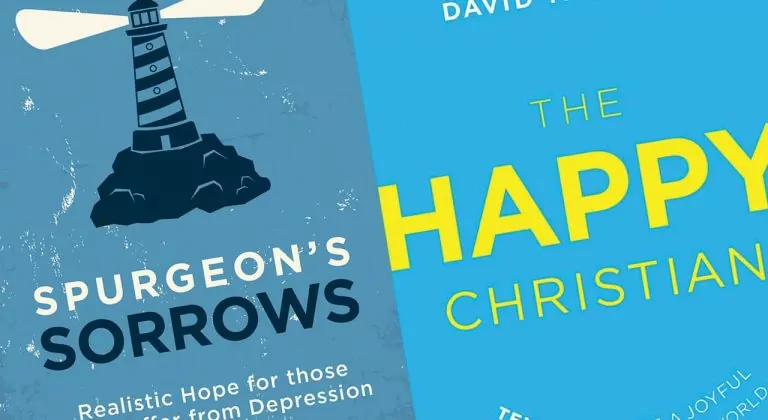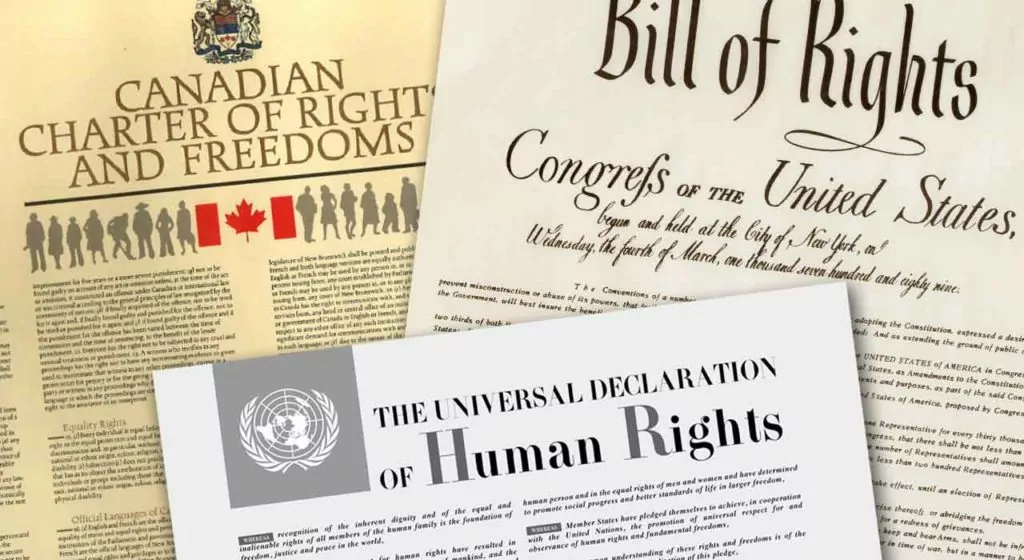SPURGEON’S SORROWS: Realistic hope for those who suffer from depression
by Zack Eswine
144 pages / 2014
Drawing on over eighty sermons by C. H. Spurgeon (largely from the Metropolitan Tabernacle Pulpit), the author paints a vivid picture of the recurring bouts of depression, melancholy, and helplessness that harassed Spurgeon. But Spurgeon’s difficulties also enabled him to minister from the pulpit and in correspondence with many suffering from depression and from the callous comfort of “friends.”
The book is organized under three themes:
1) Trying to understand depression
2) Learning how to help
3) Aids for daily coping
The author places a strong emphasis on the fact that depression often has “circumstantial, biological and spiritual contributors and challenges” and “that the spiritual side of things could originate its own kind of depression.“ He draws on sources contemporary to both Spurgeon and our day on depression,
A section named: “Jesus Suffered Depression Too” may raise eyebrows! Spurgeon on Heb. 4:15 and Heb. 2:18:
“readily applies this sympathy of Jesus to include not only our physical weakness but also our ‘mental depression.’… Realistic hope is a Jesus-saturated thing…. [He] is an ally, a hero, a companion-redeemer, advocating for the mentally harassed.”
****
THE HAPPY CHRISTIAN: Ten ways to be a joyful believer in a gloomy world
by David Murray
256 pages / 2015
In this book David Murray sets out to:
“identify the major causes of negativity and unhappiness in our lives and outline ten biblical and practical ways to tilt the balance of our attitude, outlook, words, and actions that will lift our spirits, compel attention for the Christian faith, and make the Church an energizing force in a life-sapping culture.”
The “key is individual Christians and the Christian church repositioning the positive symbol of the Christian faith, the cross of Jesus Christ, at the center of their faith again.”
Murray combines biblical breadth and depth with current research and statistics on happiness and mental health. He presents this in an older more Puritan-style of writing, full of alliteration and multiple angles of description and application. Throughout the book there is much meat and sweetness to savor and meditate upon.
The chapter on “Happy Differences” deals with the topic of “diversity” or “Why can’t everyone be more like me?” He carefully distinguishes between issues of ethnic/cultural diversities and seeing all moralities/immoralities as the same.
One quibble: I do find it odd that virtually all the Scripture citations are in the end-notes and not in the text.











